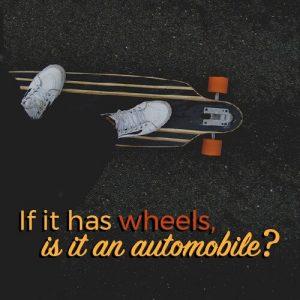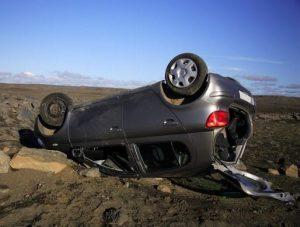
With accidents involving skateboards, scooters, and skates, liability may be more complicated to assign. However, you should still have the right to sue for compensation and hold the at-fault party accountable.
If you have any doubts or questions about how to pursue compensation following an accident, consult with an attorney. Many firms offer free consultations to help educate prospective clients about their rights and legal options.
What Are the Rules of Skateboarding?
Like so many legal questions, the answer to this one depends on where you are. The rules that apply to skateboarding, rollerblading, and similar activities vary from state to state and even from city to city. Often, these laws are grouped with laws that apply to bicycles and bike rentals, but that is not always the case. For example:
- The state of Alabama, per Ala. Code § 6-5-342 encourages landowners to set aside space for roller skaters and skateboarders. As a result, these owners are not liable for injuries that may naturally arise from skating or skateboarding activities.
- In 2018, the City of New Orleans considered a pilot program that would have paved the way for scooter rentals. However, after consideration, the city decided to wait until the infrastructure for pedestrians and bicyclists was accomplishing its goals before expanding to scooters.
- Little Rock, Arkansas, implemented a scooter rental pilot program in 2018. In 2021, the program was made permanent.
Laws pertaining to skateboards and scooters are in a state of flux in many places. A lawyer in your area can explain the laws of your city or state and how they may influence any civil action you wish to take.
For a free legal consultation, call 800-537-8185
Is It Legal to Ride on the Sidewalk?
Once again, it depends on where you are. Some cities specifically allow skateboarding and skating on sidewalks. Other cities or towns have laws that say just the opposite: that skateboarders are allowed on the roads but not the sidewalks. For example, in Little Rock, per their ordinance:
- Motorized scooters are not allowed on sidewalks in non-residential areas and must therefore stay on the road.
- Roller skaters are only allowed on roadways if they are crossing a street.
- Those riding motorized scooters are treated the same as any other driver in terms of liability. If they hit you, you may be able to sue them.
If you enjoy riding a skateboard or scooter, it is essential that you know and follow the relevant laws in your area. Likewise, if you are a pedestrian or drive a car in an area where skateboards and scooters are legal, always stay alert and keep an eye out for them as you travel.
What If You Are in an Accident on a Skateboard?
You may be able to file a lawsuit after a skateboarding accident, just like you would if you were injured in or by a car or truck. There are two main types of skating accidents: vehicle collisions and injuries that occur on property owned by someone else.
Vehicle Collisions
In a vehicle collision, an insurance adjuster or jury will determine whether the skater was reasonable and following appropriate laws. For example, if someone was skating on the road in a city where skating is only allowed in designated parks, the skater may be found at fault. Likewise, if a driver hits a skater while exceeding the speed limit, the driver may be at fault.
Accidents on Private Property
If a skater is injured while skating on someone else’s property, they may be able to file a suit against the owner. However, like vehicle collisions, a court will examine whether the skater’s behavior (e.g., not wearing a helmet) might have contributed to the accident. Also, some areas, like Alabama, protect property owners from lawsuits in some cases.
Click to contact our personal injury lawyers today
What Are Skateboarders and Drivers Liable for?
If someone—whether a driver or a skateboarder—causes an accident on a public roadway, they may be liable for all damages you sustained in the accident (subject to any state laws that limit your ability to collect damages). This includes:
- Pain and suffering, which includes both physical and psychological injuries
- Disfiguring scar tissue left by your injuries
- Permanent or temporary disability, including both physical and intellectual disabilities
- Past and future medical expenses
- Wages lost when your injuries prevented you from working
- The cost of repairing your car, skateboard, or another vehicle
What you can collect in compensation will ultimately depend on state laws, how much damage you sustained, what the liable party’s insurance company covers, and whether or not you can prove the responsible party’s guilt.
How Can I Stay Safe While Skateboarding?
There are several reasons for the laws that apply to skateboarders and others. Some laws aimed at keeping skaters out of crowded places are intended to keep pedestrians safe on the sidewalks. Other laws, such as ones that do not allow skateboarding at night, aim to keep the skaters themselves safe.
In addition to following all applicable laws, there are other ways you can protect yourself (and others). For example, the Consumer Protection Safety Commission (CPSC) suggests the following.
Wear Safety Equipment
Skateboards, scooters, and skates offer very little protection in case of an accident. You can lower your risk of injury by wearing:
- A properly fitted helmet
- Knee and elbow pads
- Shoes that are comfortable and appropriate for skateboarding
Ride During the Day
The CPSC recommends only riding during daylight hours when drivers can easily see you. However, if you do plan to ride at night, certain types of equipment can mitigate risks, including:
- Reflectors
- A bell or horn
- Front and backlights that are visible from 500 feet
Keep Your Distance
Whether you are on a skateboard or in a car, following other vehicles too closely can be dangerous. You can stay safe by:
- Not tailgating or “skitching” (hitch a ride on a car)
- Staying well away from other vehicles
- Being prepared to stop, change lanes, or move to the side if other vehicles start coming too close or slowing down
General Caution
It is everyone’s responsibility to keep themselves and their neighbors safe while traveling. This includes the following.
- If you are in a stationary vehicle, check that the way is clear before opening your door.
- Do not drink or take drugs before using a scooter, skateboard, or skates.
- Before skateboarding in a particular area, look over the roadway or sidewalk for potential hazards (e.g., potholes) so that you know what to expect.
- Do not travel too fast—even if you are nowhere near the speed limit, a safe speed may be affected by poor weather, rough terrain, or your abilities.
It is important to note that pedestrians have the right of way when appropriately crossing signed streets. All others, including those on scooters, must yield to pedestrians in crosswalks.
Contact Our Law Office to Learn More About Determining Liability for Your Accident
If you were injured in an accident involving skateboards, scooters, or skates, we will work with you on a contingency-fee basis to gather evidence and prove liability in your case. An attorney from the Morris Bart law office can determine what types of claims you have so that you can recover what you deserve.
Call us at (800) 537-8185 today. We have 15 office locations throughout Louisiana, Mississippi, Alabama, and Arkansas.
Questions?Call 800-537-8185
to find a Morris Bart office near you.




